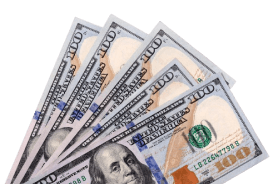
In the United States, credit cards have become a staple of modern life, offering convenience and flexibility. However, this convenience can come at a steep cost. With Americans currently facing an alarming $1.1 trillion in credit card debt, it’s essential to understand the dangers that come with relying too heavily on credit. Here’s a closer look at the implications of credit card debt and why it’s crucial to manage it wisely.
The Rising Tide of Credit Card Debt
As of recent reports, American households owe a staggering $1.1 trillion on credit cards. This number is not just a statistic; it reflects a growing trend of overspending and reliance on credit. According to the Federal Reserve, the average credit card debt per household with credit cards is around $15,000. This heavy reliance on credit can lead to a host of financial challenges.
High Interest Rates: A Double-Edged Sword
One of the most significant dangers of credit card debt is the high-interest rates associated with it. Many credit cards have annual percentage rates (APRs) ranging from 15% to 25% or more. When consumers carry a balance from month to month, interest accumulates, making it increasingly difficult to pay off the principal amount. This cycle of debt can lead to a financial trap, where individuals find themselves paying only the interest and never making a dent in the actual debt.
Impact on Credit Scores
Another danger of accumulating credit card debt is its effect on credit scores. High credit utilization—using a large portion of your available credit—can lower your credit score, making it harder to secure loans or favorable interest rates in the future. A poor credit score can lead to higher insurance premiums, increased borrowing costs, and even challenges in securing housing or employment.
Emotional and Psychological Toll
The impact of credit card debt extends beyond financial implications. Many individuals experience significant stress and anxiety related to their debt levels. The constant worry about making minimum payments, dealing with collection calls, and the fear of bankruptcy can take a toll on mental health. This emotional strain can lead to decreased productivity, strained relationships, and overall dissatisfaction with life.
The Temptation of Minimum Payments
Credit cards often encourage consumers to make only minimum payments, which can be deceptively appealing. While it may seem manageable to pay a small amount each month, this practice can extend the repayment period for years, if not decades. For example, if you have a $5,000 balance and only make minimum payments, you could end up paying thousands in interest over time, ultimately costing you far more than the original amount borrowed.
A Cycle of Debt
For many Americans, the reliance on credit cards can create a vicious cycle. As debt increases, individuals may turn to additional credit to cover expenses, leading to an unsustainable financial situation. This cycle can result in late fees, increased interest rates, and ultimately, collections or bankruptcy. According to a report by the American Bankruptcy Institute, credit card debt is a leading cause of personal bankruptcy filings.
Taking Control: Steps to Manage Credit Card Debt
While the dangers of credit card debt are significant, there are steps individuals can take to regain control:
- Create a Budget: Understand your income and expenses, and prioritize paying down debt.
- Make More Than the Minimum Payment: Whenever possible, pay more than the minimum to reduce the principal and interest.
- Avoid New Charges: Resist the temptation to add to your debt while you’re paying it down.
- Consider Debt Consolidation: Look into consolidating your debt into a lower-interest loan to simplify payments.
- Seek Professional Help: If debt becomes unmanageable, consider consulting a financial advisor or credit counseling service.
Conclusion
Credit card debt is a growing concern in America, with $1.1 trillion hanging over many households. Understanding the dangers associated with this debt is crucial for anyone who relies on credit cards. By taking proactive steps to manage debt, individuals can regain control of their financial futures and avoid the pitfalls of credit card debt. Remember, financial health is not just about spending but also about smart management and informed choices.
